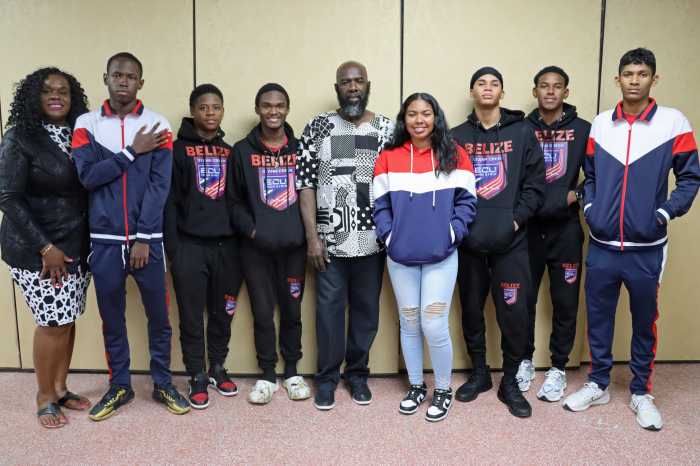Prior to 1859 Great Britain did not own or had any title to Belize. There was no such thing as “no man’s land” or “vacant land” (terra nullius) between Mexico and Guatemala that the British occupied and owned. All lands in this area were under Spanish rule and the British accepted and respected that. If this was not the case there would have been no need for Great Britain to enter into the 1783 and 1786 treaties with Spain to cut logwood and mahogany between the Rio Hondo and Sibun Rivers. Spain, however, granted to Britain only usufruct rights (the legal right of using and enjoying the fruits and profit of something belonging to another) but sovereignty remained with Spain.
Lesson 1: Under the Special Agreement (SA) Guatemala can use said two treaties, which have defined boundaries, to claim ownership between the Rio Hondo and Sibun Rivers both of which supersede the 1859 Treaty. ICJ ruling states that, “A boundary established by treaty achieves a permanence which the treaty itself does not necessarily enjoy.”
Guatemala, upon declaring independence from Spain in 1821, claimed from the Sibun River southward as succession from Spain. Britain was in illegal occupation of said lands at that time which were within the domain of Spain and formed part of the Province of Verapaz within the Captaincy General of Guatemala. The British did not and could not protest this claim by Guatemala as the British were in adverse possession of the lands between the Sibun and Sarstoon Rivers as they had no permission from Spain to occupy said lands. Also, the United States recognized that the area south of the Sibun River was for Guatemala.
Lesson 2: Britain cannot claim acquisitive prescription to legitimize its possession of Belize. There are four conditions that have to be satisfied, viz. The possession should be open, peaceful, undisturbed, and without knowledge of the owner. These conditions were not met by the British and as noted earlier, Britain, by its own actions, accepted and respected Spain as the owner and consequently said possession was illegal and based on usurpation (seizing or exercising authority or possession wrongfully) which is not recognized in international or any law;
It was not until April 30, 1859 that Guatemala, by its own free will and not under any pressure, signed the 1859 Boundary Treaty in Guatemala City which gave Great Britain absolute title to Belize.
It can be said that the most important thing the British did for Belize to guarantee its sovereignty and territorial integrity was to get Guatemala to sign the 1859 Boundary Treaty. This was achieved through several diplomatic maneuvers and promises (Art.7) to build a cart road which was never done by the British and which led Guatemala in 1946 to unilaterally declare said Treaty null and void and reclaimed from the Sibun to the Sarstoon. Unfortunately, said unilateral declaration is not recognized by international law. On signing and ratifying the 1859 Treaty, Guatemala relinquished all claims to Belize.
All of Guatemala’s claims died or were extinguished with the signing of the 1859 Treaty and it is inconceivable how our government has now signed a Special Agreement that is effectively giving life to dead claims and converting unfounded claims into legal claims. The British told Guatemala that if they believe that the 1859 Treaty is no longer valid then they can go to the International Court of Justice (ICJ) for a ruling on the validity of said treaty. The Guatemalans refused, as they wanted to make claims from time immemorial leading up to the signing of the Treaty in 1859. Now the Belize government is congratulating themselves saying that they have accomplished what the British could not do by having Guatemala agreeing to take all their claims to the ICJ. How ridiculous! The Special Agreement (SA) is setting aside the 1859 Treaty and allowing Guatemala to accomplish what they always wanted to do by taking any and all of their unfounded claims to the ICJ that the British were not earlier allowing.
Lesson 3: Guatemala has absolutely no claims to Belize and as a consequence we must never entertain Guatemala to make any claims to Belize at the ICJ.
We should only go to the ICJ for a legal / advisory opinion on the validity of the 1859 Treaty. So, in an effort to maintain our status quo, Belizeans must vote NO to the ICJ in the upcoming referendum.
The 1859 Treaty is the most important document Belize has to defend its claim to the 8,867 sq. miles we call home and it clearly and unambiguously defines the boundary between Belize and Guatemala. We should, therefore, never allow the ICJ to “determine” our borders which were already determined by the 1859 Treaty and subsequently demarcated, and reaffirmed in the 1931 Exchange of Notes. If we look at Article 1 of the 1859 Treaty that describes the boundary between Belize and Guatemala, we will note that all the features marking our border viz. Sarstoon River, Gracias a Dios Falls, Garbutt’s Falls, and the Mexican frontier (Blue Creek/Rio Hondo) are all natural/geographic features and not “artificial” boundary features.
Lesson 4: We know exactly where our border markers are. They are easy to locate, and cannot be moved or hidden and consequently we do not need to go to the ICJ to tell us where our borders are located. Also, the 1859 Treaty is an international treaty lodged at the United Nations and internationally recognized as such by all countries, except Guatemala.
So, when we hear the Ministry of Foreign Affairs (MFA) propaganda that we need to go to the ICJ to tell us where our borders are so that they can be internationally recognized, we need to regard that as total nonsense and if that was the case then most countries in the world would not have internationally recognized borders. Successive governments since Independence have not done a good job in protecting our borders and maintaining our sovereignty and territorial integrity, but have been complaining about encroachments and deforestation within Belize, and that we now need to go to the ICJ to arrest this undesirable situation. If we look at satellite imagery before independence to present, we will observe that all of the deforestation and encroachments into Belize started in the 1980s and have continued unabated to present. The question must be asked why when the British with their limited in-country resources were patrolling our borders that we experienced no encroachments into Belize, and as soon as we started patrolling our borders that encroachments and deforestation started. In fact the situation along the western border became so bad that several settlements began showing up in Belize, the most notable being Santa Rosa which in 2002 had over 20 family homes and a school flying the Guatemalan flag within Belize. One has to be totally blind to not see said encroachments when patrolling the border.
Lesson 5: The Government of Belize needs to start doing a better job at protecting our borders and protesting Guatemala’s encroachments internationally. The Guatemalans have continued to capitalize on our shortcomings and have extended their illegal activities to the Sarstoon River where they have taken effective control of said river and are disrespecting our sovereignty and territorial integrity. This situation has to be regularized before we even consider going to the ICJ with the Special Agreement (SA) signed on December 8, 2008 in Washington.
The SA is giving the ICJ the authority to determine “any and all legal claims of Guatemala” against Belize and to subsequently determine the boundaries between Belize and Guatemala, which can result in the whole or a piece of Belize be given to Guatemala. The granting of said authority to the ICJ is unconstitutional and for this to take effect the Constitution of Belize has to be amended with support from at least 2/3 of the members of the House of Representatives.
The government is now begging the Belizean people to vote YES at the upcoming referendum in April 2019 to justify their undesirable action in signing the SA, and to absolve them from any wrongdoings so when a piece of Belize is given to Guatemala by the ICJ, the government will not take blame but will say – that’s what you voted for and you are now refugees in your former country.
The Ministry of Foreign Affairs cannot say what the Guatemalan claims are, but is saying that those who will vote NO are crazy to do so. Would any patriotic Belizean want to give up a piece of Belize at the ICJ when our best case scenario is that we can only come out the same way we went in and in the worst case scenario, we can lose all of Belize to Guatemala?

























